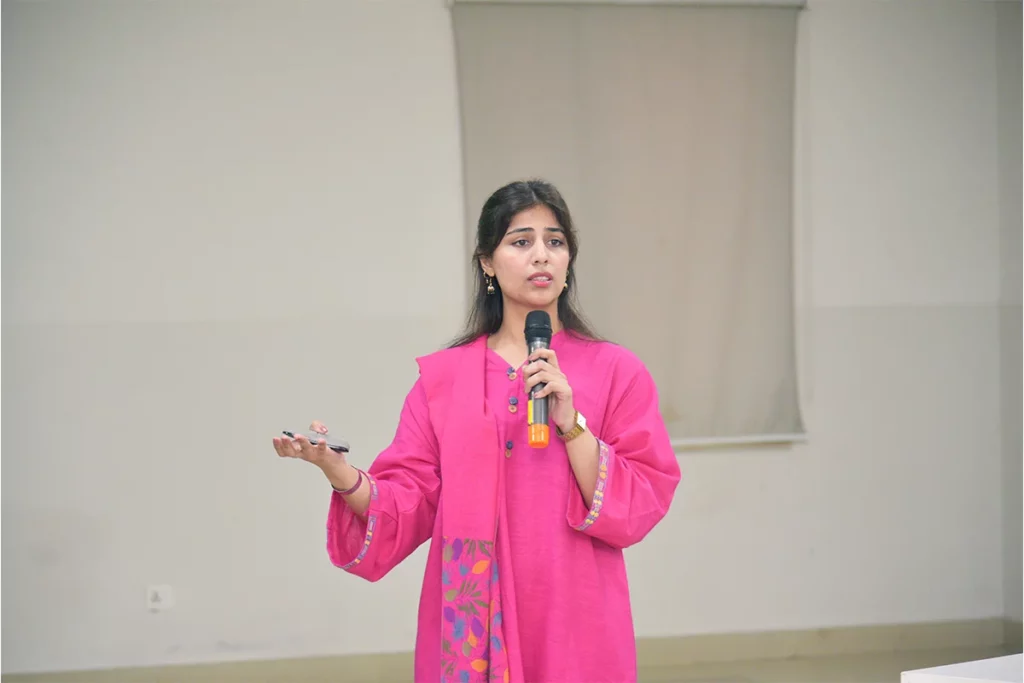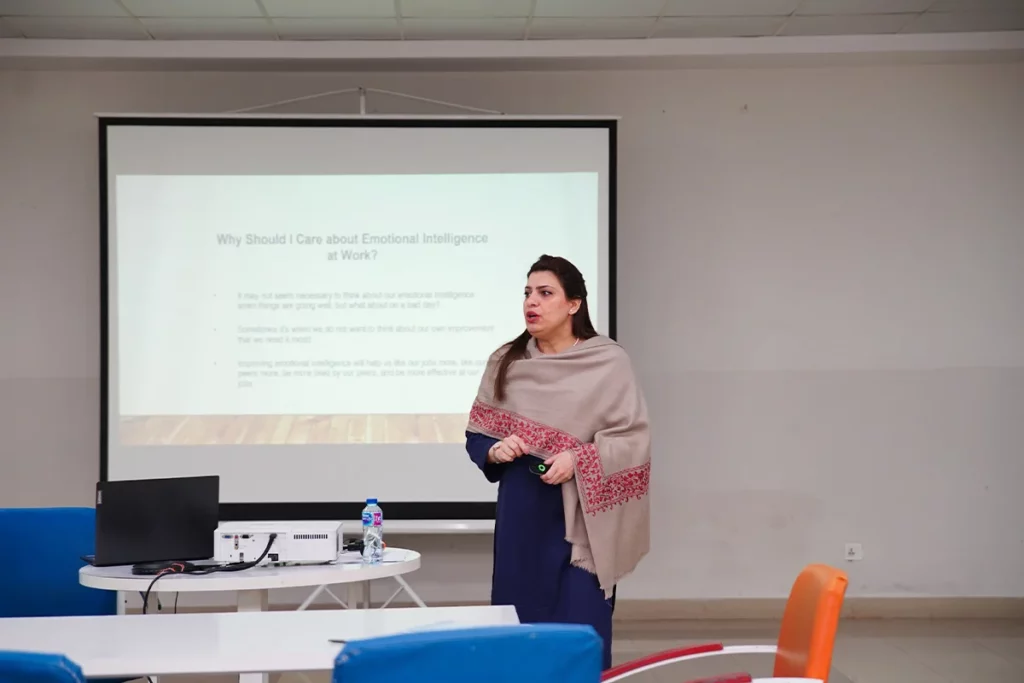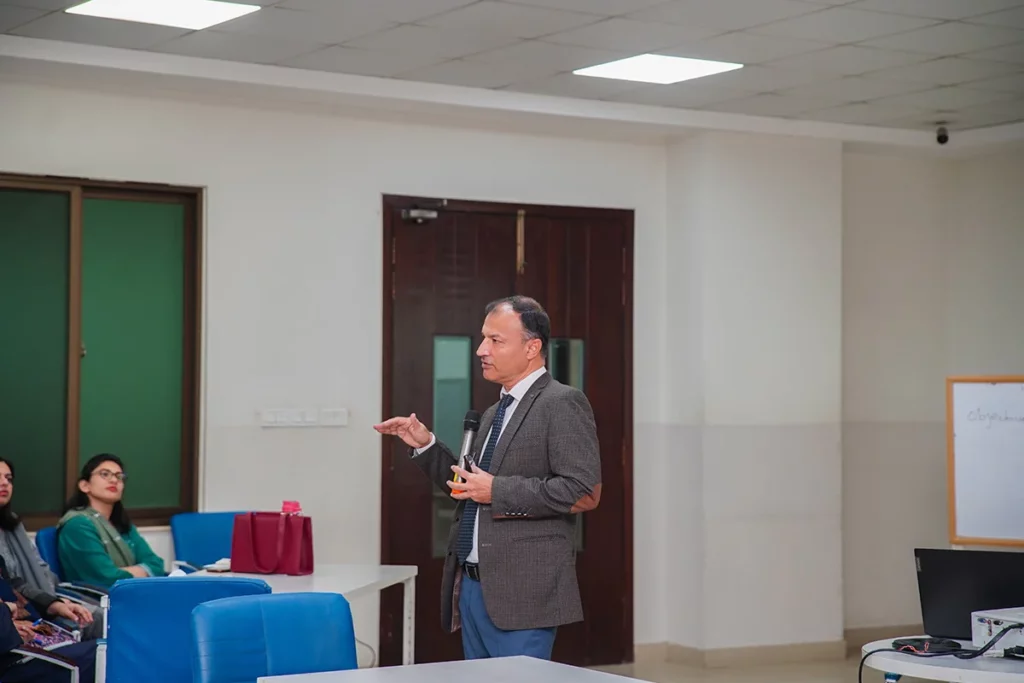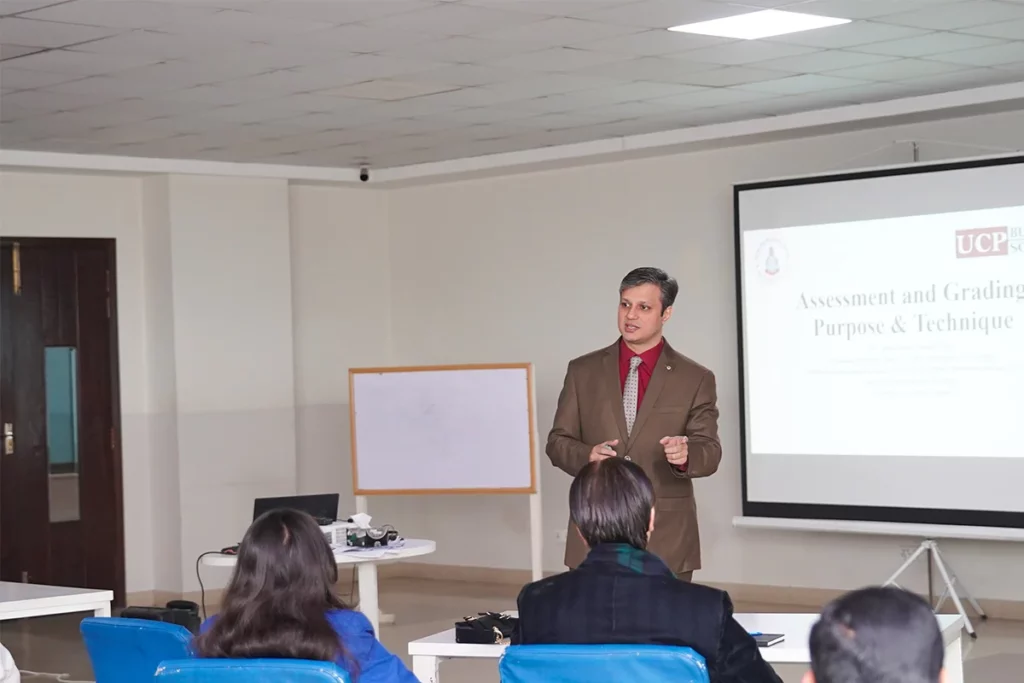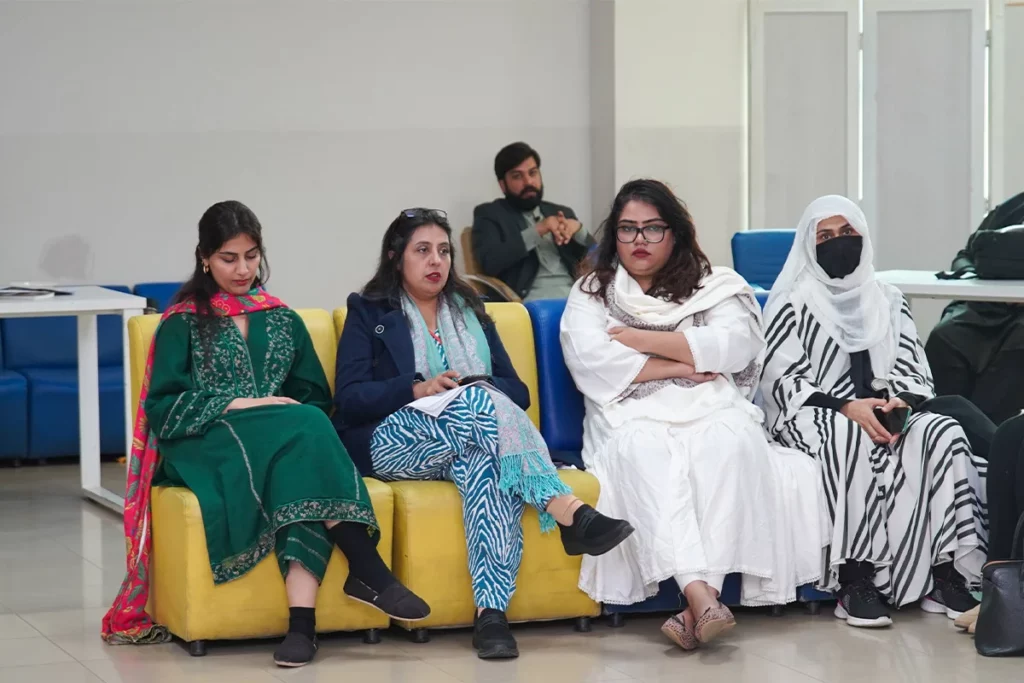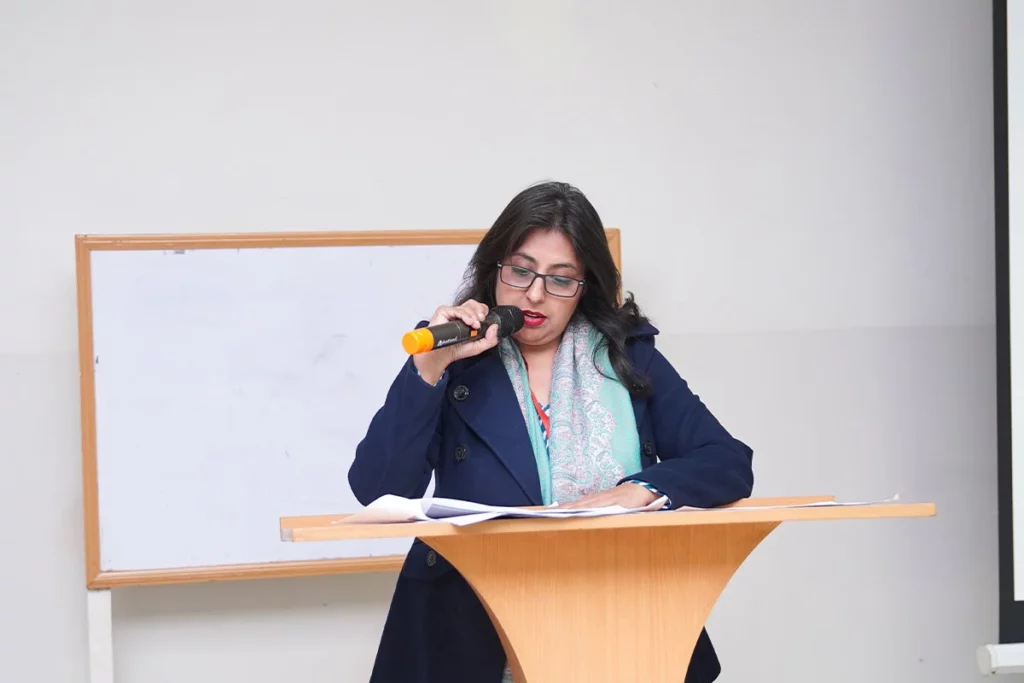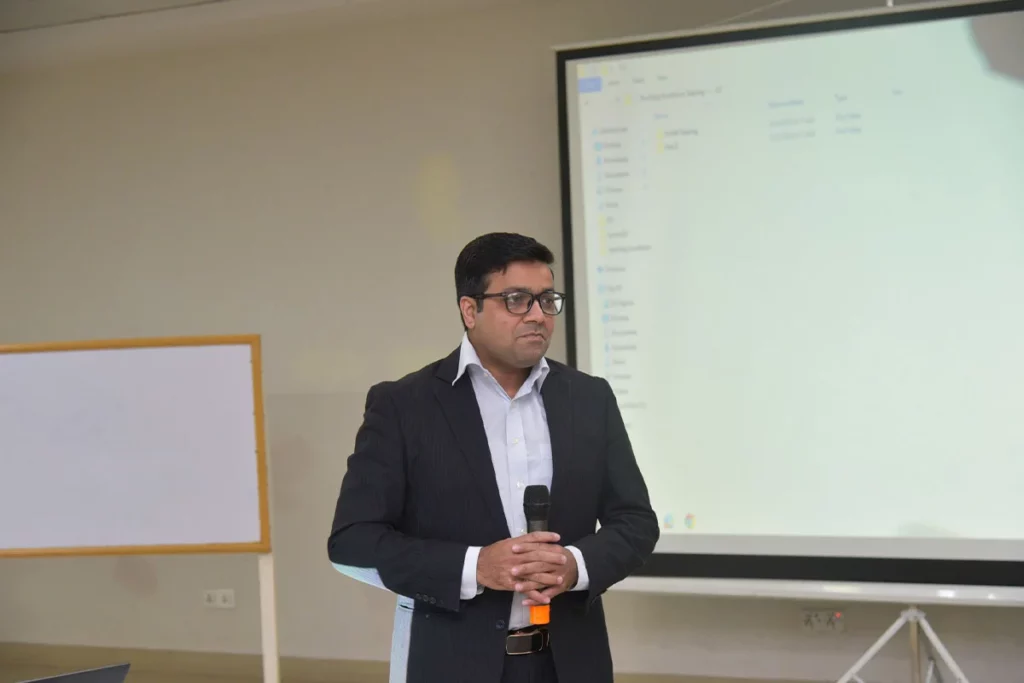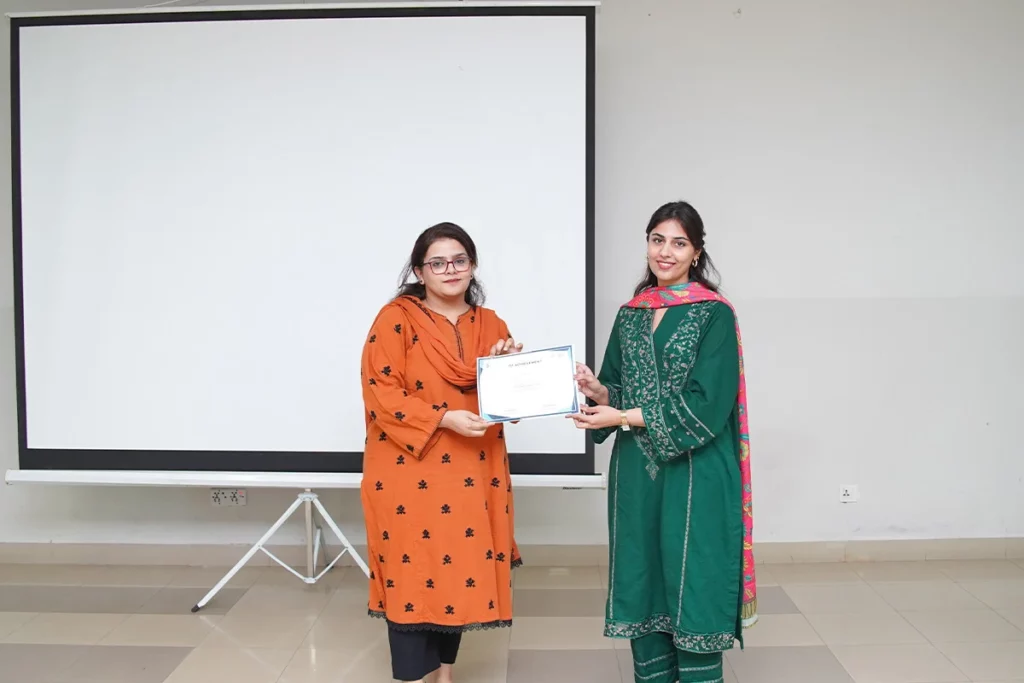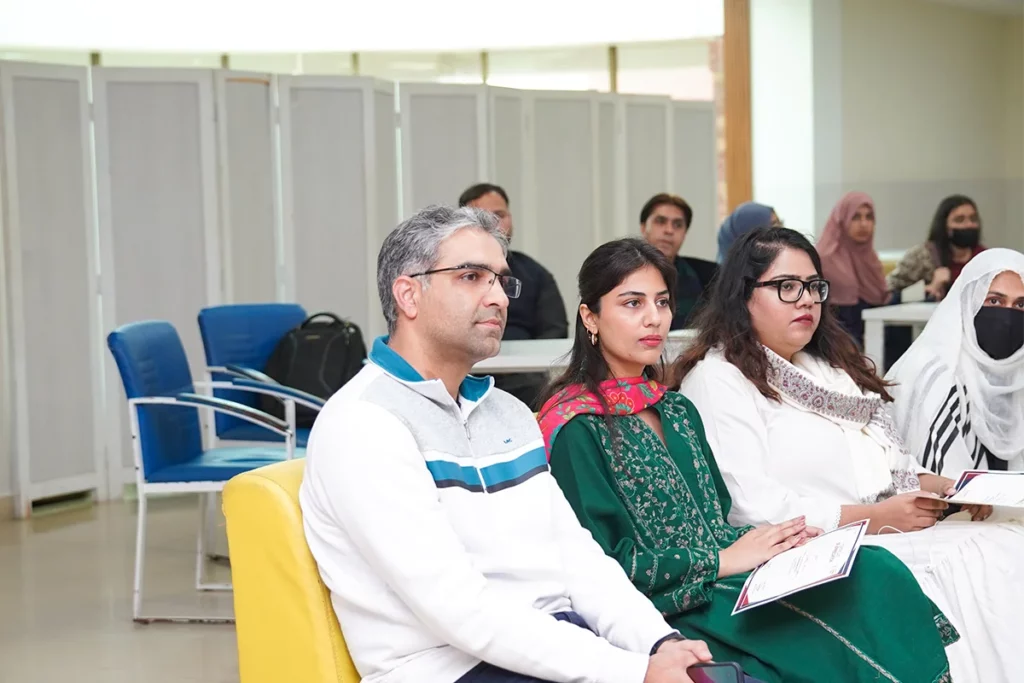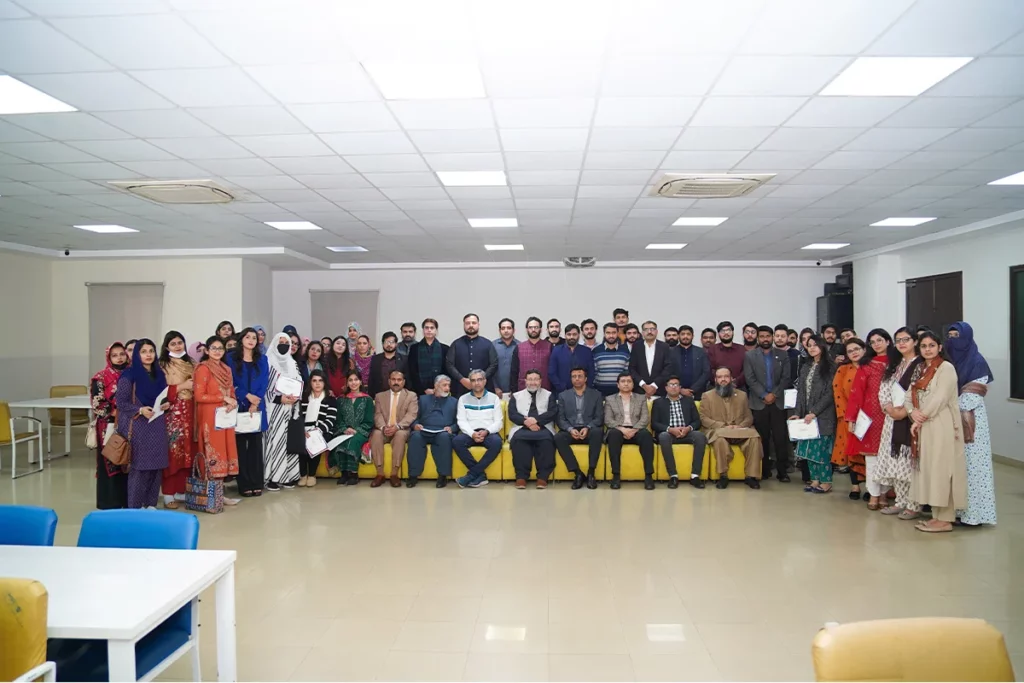The University of Central Punjab recently organized a comprehensive Teaching Excellence Training program aimed at enhancing the pedagogical skills, instructional effectiveness, and overall well-being of faculty members. The sessions covered a broad range of topics designed to equip educators with contemporary teaching strategies, digital innovations, student engagement techniques, and personal development approaches. The objectives of each module included:
Understanding Gen Z and Aligning Teaching Strategies
Develop an understanding of Generation Z and their key characteristics.
Enable faculty to tailor teaching strategies that align with the learning preferences of Gen Z.
Impart knowledge about Malcolm Knowles’ Adult Learning Theory.
Apply andragogical concepts to modern classroom practices.
Introduce active learning and its various strategies.
Practice active learning techniques to enhance student engagement.
Interactive Teaching and Lesson Planning
Understand the core principles of interactive teaching.
Develop comprehensive and engaging lesson plans.
Identify the significance of the BOPPPS model in structured lesson delivery.
Examine the application and impact of Bloom’s Taxonomy.
Explore diverse student learning styles to accommodate individual needs.
Mental Health Awareness
Recognize signs and symptoms of common mental health issues (e.g., stress, anxiety, depression).
Foster empathy and reduce the stigma surrounding mental health discussions.
Learn effective self-care practices.
Prioritize mental well-being to promote a healthy and supportive learning environment.
Facilitation vs. Teaching
Distinguish between traditional teaching and facilitation.
Develop facilitation techniques that encourage critical thinking, collaboration, and student participation.
Team Building and Cultural Adaptability
Enhance teamwork skills for collaborative goal achievement.
Support participants in adapting to cultural changes in the workplace productively.
Introduction to AI and GPT Technologies in Education
Provide foundational knowledge of Artificial Intelligence and GPT tools.
Demonstrate practical applications of AI in curriculum design, assessments, and academic research.
Addressing Bilingual/Trilingual Classroom Challenges
Build empathy for students with limited English proficiency.
Learn effective instructional strategies to support diverse linguistic backgrounds.
Understanding the UCP Grading System
Familiarize new faculty with the University’s relative grading system.
Train faculty in using grading software efficiently.
Effective Assessment and Feedback
Understand the significance of assessments in education.
Differentiate between formative and summative assessments.
Design rubrics with clear objectives, scoring criteria, and performance levels.
Grasp the differences between relative and absolute grading methods.
Address common grading issues such as inflation and deflation.
Link program objectives, course outcomes, and assessment tools for curricular coherence.
Learn the concepts of feedback and feedforward to enhance student development.
Engage in reflective practice to improve teaching methodologies.
Personal Well-being: Yoga and Exercise
Emphasize the importance of incorporating yoga and physical exercise into daily routines.
Promote self-care and personal well-being for sustained professional effectiveness.
